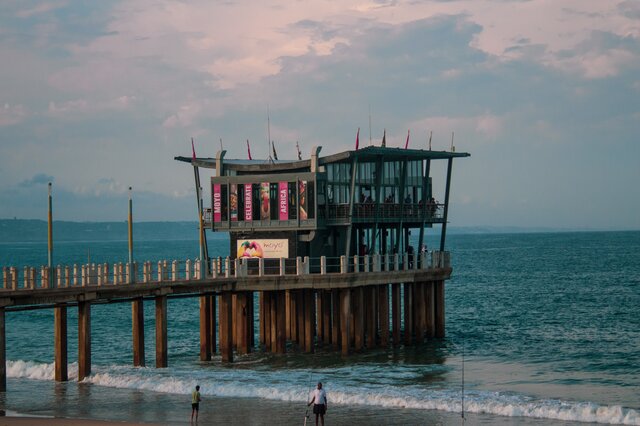Johannesburg – Untreated sewage flowing into the Indian Ocean has hoteliers in tourist hotspot Durban up in arms as South Africa gears up for the holiday season.
The city’s sewer system was badly damaged by deadly floods – the worst in living memory – that hit the southeastern KwaZulu-Natal province earlier this year.
In April, Durban shut all beaches after high levels of E.coli, a bacteria that can cause diarrhoea, fever and vomiting, were found in the water.
Some started reopening in July but as of Wednesday, with the southern hemisphere’s summer knocking on the door, water readings from four of about two dozen beaches still showed critically high levels of E.coli.
Popular for its idyllic beaches and game and nature reserves, Durban – South Africa’s third-largest city – is usually a magnet for both local and international tourists.
“The reaction from the municipality has been at a snail’s pace,” said Brett Tungay, a leader of hospitality trade group FEDHASA.
“Resorts and hotels have taken a huge impact. And of course that then has knock-on effects on all the restaurants and tourism activities in the city.”
ALSO READ | WATCH | Fans just stare at Andile Mpisane as he performs at Durban concert
The floods, in which more than 400 people died, added to years of disrepair, according to Janet Simpkins, director of environmental group Adopt a River.
“Sewer lines and infrastructure have not been maintained. Upgrades have not been done. And so our entire sewer system is overburdened,” she said.
Earlier this month the opposition Democratic Alliance challenged the mayor to take a dip at a beach the party said was prematurely re-opened.
Mayor Mxolisi Kaunda of the ruling African National Congress (ANC) did go for a swim, but at a different beach.
Authorities in eThekwini, the municipality that includes Durban, said this week they have been fixing sewerage pump stations and one of the water treatment plants causing the problem.
“The repair work to our sanitation infrastructure is progressing very well,” eThekwini spokesman Msawakhe Mayisela told AFP. “There is a huge likelihood that all beaches will be open soon.”
Mayisela said the health of the public was the city’s priority adding it had moved “with speed” to start repairs after the floods.
“Our city is open for business,” Mayisela said.
Follow African Insider on Facebook, Twitter and Instagram
Source: AFP
Picture: Pixabay
For more African news, visit Africaninsider.com


